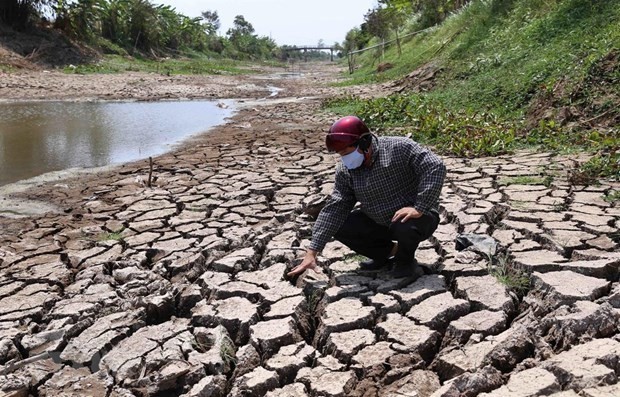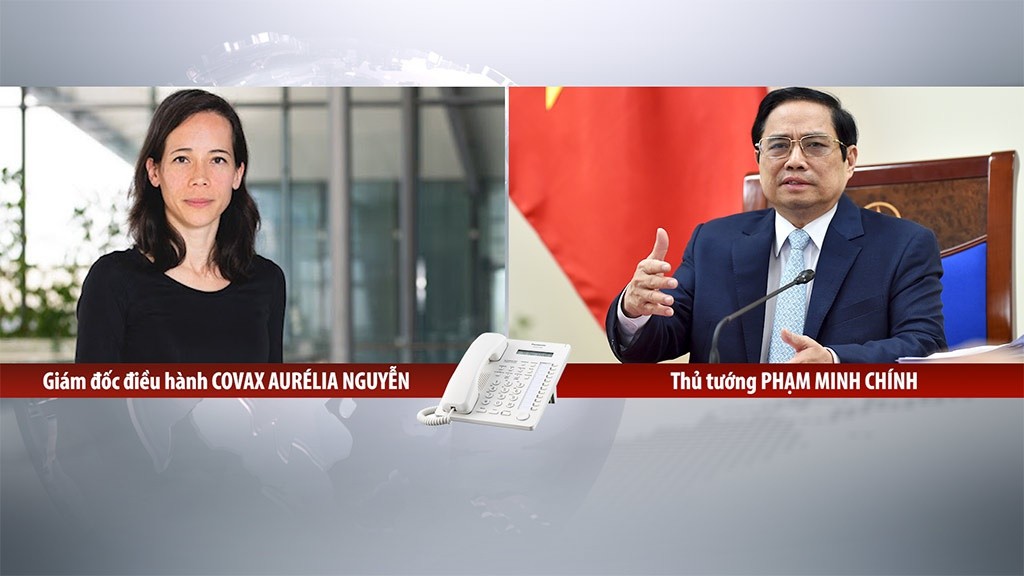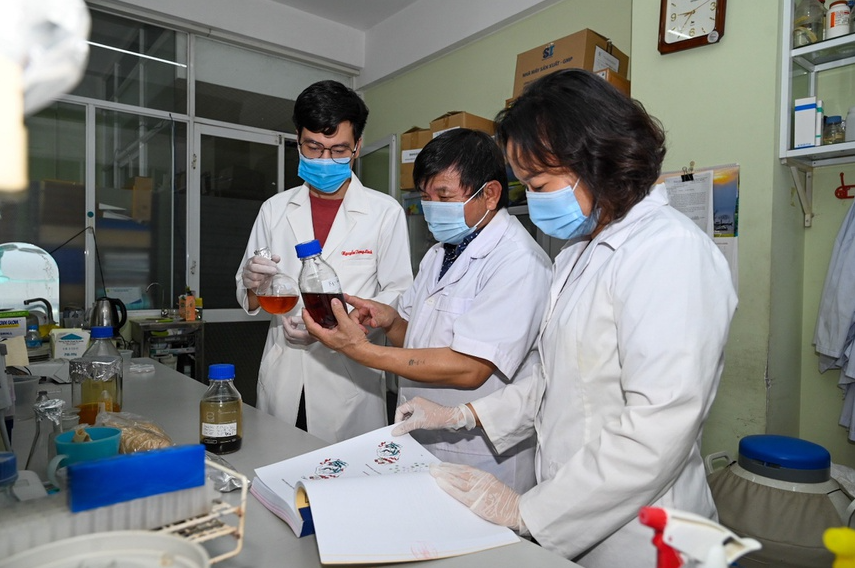European begans review of Russia’s Sputnik V vaccine, studying on it’s efficacy
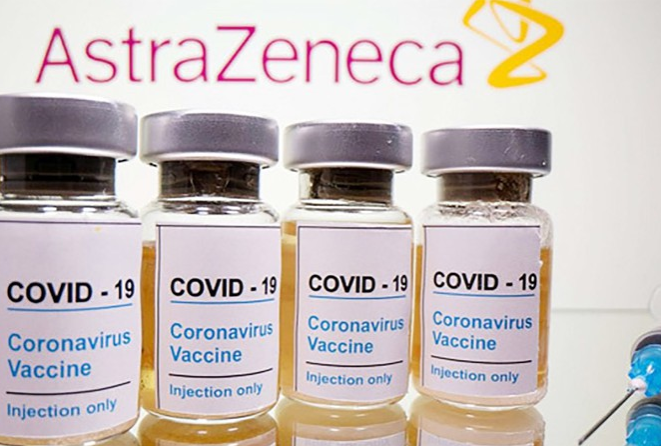 | Vietnam COVID-19 Updates (March 5): No new case, Hai Duong to be first locality receiving vaccine On the morning of March 5, the Ministry of Health informed that there were no new cases of COVID-19 reported. Also according to the Ministry, ... |
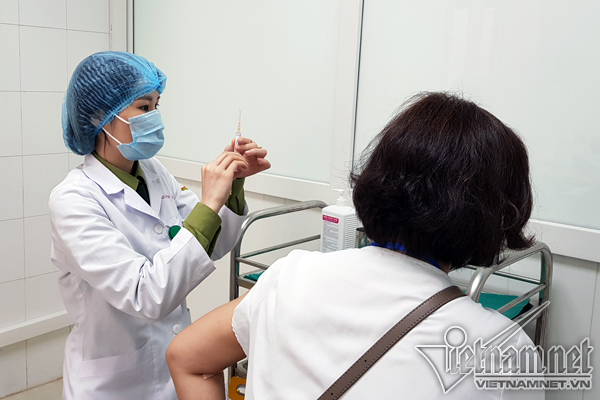 | Human trials of Vietnamese homegrown COVID-19 vaccine running smoothly Vietnam has completed 65 percent of the second phase of human trials for the locally-produced Nanocovax vaccine against COVID-19, with many old volunteers involved. |
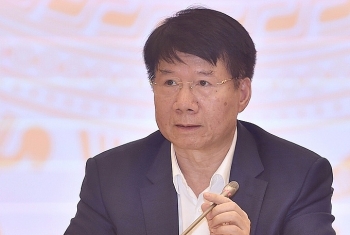 | Vietnam prioritizes pandemic-hit localities for COVID-19 vaccines COVID-19-struck cities and provinces, including Hai Duong – Vietnam current’s biggest hotspot – will get innoculation priority as soon as the first batches of COVID-19 ... |
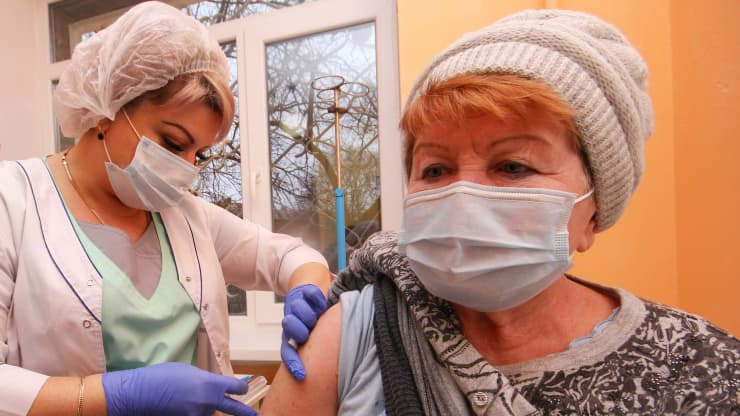 |
| A woman receives the second component of the Gam-COVID-Vac (Sputnik V) COVID-19 vaccine. Valentin Sprinchak | TASS | Getty Images |
“EMA will assess Sputnik V’s compliance with the usual EU standards for effectiveness, safety, and quality. While EMA cannot predict the overall timelines, it should take less time than normal to evaluate an eventual application,” the regulator said in a statement.
The EMA is using a rolling review to study the data for the jab developed in Russia. This allows the European medical authority to assess its efficacy as it receives all the necessary information before the vaccine maker can apply for formal authorization. By analyzing the studies ahead of the application, the EMA’s potential approval could come quicker than usual, CNBC reported.
The news comes after a number of European countries indicated that they could start administering Sputnik V, bypassing the regulator. Slovakia and Hungary have already ordered doses of the Russian jab while the Czech Republic and Austria are considering the vaccine.
In January, German Chancellor Angela Merkel said she was “open” to the idea of producing Russia’s coronavirus vaccine in the European Union.
European Commission President Ursula von der Leyen in February questioned why Russia was offering up so many of their vaccines when its own population is yet to be fully vaccinated.
“Overall I must say we still wonder why Russia is offering theoretically millions and millions of doses while not sufficiently progressing in vaccinating their own people,” she said. “This is also a question that I think should be answered,” she added, according to Politico.
Under pressure
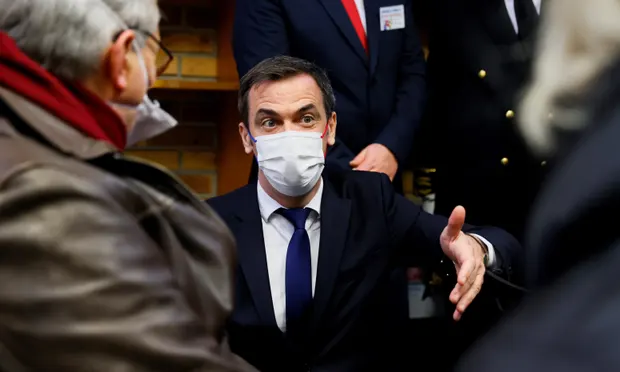 |
| Olivier Véran, the French health minister, speaks to people waiting to receive a Covid vaccine. Véran said France should deliver 6m first jabs in March. Photograph: Thomas Samson/EPA |
European countries are under pressure to speed up the rollout of Covid jabs as their program is clearly lagging behind other parts of the world, such as Israel, the United States, and the United Kingdom.
Authorities in Germany and France are under pressure to come up with creative solutions to shift the AstraZeneca vaccine at a higher speed in order to avoid a pile-up of unused doses over the coming weeks, according to The Guardian.
On Monday, France’s medical regulator reversed its advice not to use the AstraZeneca jab on over-65s, and Germany’s vaccination committee is coming under increasing pressure to follow suit or even scrap prioritization altogether.
Both countries have been slow to administer the Oxford-developed vaccine, subject to an acrimonious tug-of-war over delayed deliveries between its Swedish-British producer and the European Commission in January.
The utilization rate of the AstraZeneca jab in France stands at 24%, an official with the health ministry said on Tuesday, well below a target set at 80-85%. In Germany two-thirds of 1.4m delivered doses remained in storage on Monday.
Austria and Denmark have also recently joined forces with Israel in the production of second-generation vaccines, aimed at dealing with variants of Covid-19. At the time of the announcement, Austrian Chancellor Sebastian Kurz mentioned that the EMA has been too slow in approving vaccines to fight the pandemic.
The institution has so far approved three vaccines: Pfizer’s, AstraZeneca’s and Moderna’s.
In addition, European countries have criticized pharmaceutical firms for some hurdles in the production and delivery of vaccines.
European nations have agreed that coordinated action would be the best way to deal with the health emergency and have tasked the European Commission with negotiating contracts with the pharmaceutical firms.
However, EU member states are still allowed under European law to approve their own vaccines without waiting for approval at the EU level.
Russia’s Sputnik V vaccine: How it works?
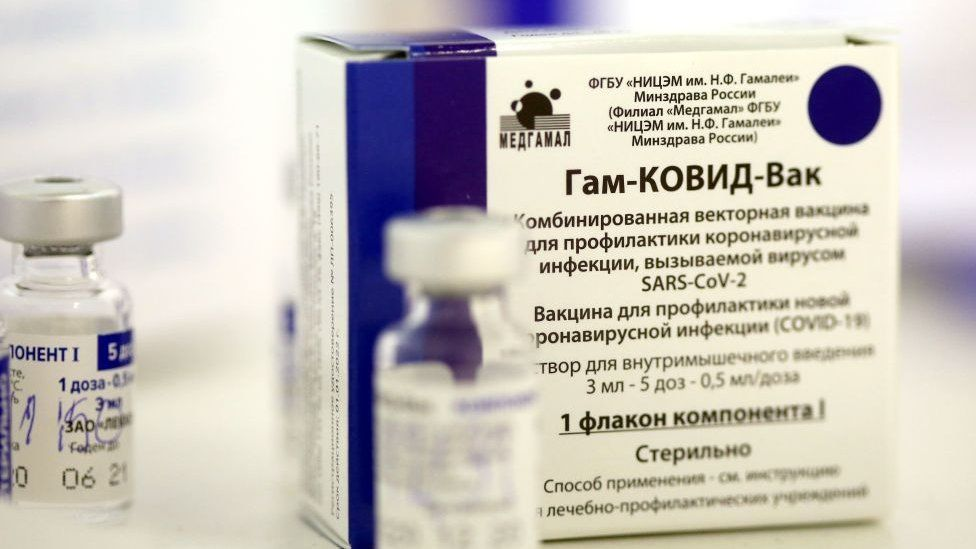 |
| Photo: Getty Images |
Russia's Sputnik V coronavirus vaccine gives around 92% protection against Covid-19, late stage trial results published in The Lancet reveal.
It has also been deemed to be safe - and offer complete protection against hospitalisation and death, according to BBC.
The vaccine was initially met with some controversy after being rolled out before the final trial data had been released.
But scientists said its benefit has now been demonstrated.
It joins the ranks of proven vaccines alongside Pfizer, Oxford/AstraZeneca, Moderna and Janssen.
The Sputnik vaccine works in a similar way to the Oxford/AstraZeneca jab developed in the UK, and the Janssen vaccine developed in Belgium.
It uses a cold-type virus, engineered to be harmless, as a carrier to deliver a small fragment of the coronavirus to the body.
Safely exposing the body to part of the virus's genetic code in this way allows it to recognise the threat and learn to fight it off, without risking becoming ill.
After being vaccinated, the body starts to produce antibodies specially tailored to the coronavirus.
This means the immune system is primed to fight coronavirus when if it encounters it for real.
It can be stored at temperatures of between 2 and 8C degrees (a standard fridge is roughly 3-5C degrees) making it easier to transport and store.
But unlike other similar vaccines, the Sputnik jab uses two slightly different versions of the vaccine for the first and second dose - given 21 days apart.
They both target the coronavirus's distinctive "spike", but use different vectors - the neutralised virus that carries the spike to the body.
The idea is that using two different formulas boosts the immune system even more than using the same version twice - and may give longer-lasting protection.
As well as proving effective, it was also safe with no serious reactions linked to the vaccine during the trial.
Some side effects to a vaccine are expected but these are usually mild, including a sore arm, tiredness and a bit of a temperature.
And there were no deaths or serious illness in the vaccinated group linked to the jab.
In a comment published alongside the Lancet paper, Profs Ian Jones and Polly Roy said: "The development of the Sputnik V vaccine has been criticised for unseemly haste, corner cutting, and an absence of transparency.
"But the outcome reported here is clear and the scientific principle of vaccination is demonstrated, which means another vaccine can now join the fight to reduce the incidence of Covid-19".
They pointed out the vaccine had good effect in all age groups, and reduced the seriousness of the disease after one dose.
This was "particularly encouraging" while supply of the vaccine is limited, they added.
The authors of the Lancet paper pointed out the analysis only included symptomatic cases of Covid, and more work would need to be done to understand whether it stops even asymptomatic cases, and prevents the virus from being passed on by vaccinated people.
Dr Julian Tang, a clinical virologist at the University of Leicester, said: "Despite the earlier misgivings about the way this Russian Sputnik V vaccine was rolled out more widely - ahead of sufficient Phase 3 trial data - this approach has been justified to some extent now.
"Such pandemic-related vaccine rollout compromises have, to be fair, been adopted in the UK vaccination programme also - with the extended intervals between the first and second doses.
"So we should be more careful about being overly critical about other countries' vaccine designs."
 | Made-in-Vietnam COVID-19 vaccine to be priced under US $2.6 The indigenous Covivac vaccine is expected to be less than US $2.6 (VND 60,000) per dose, a reasonable price for all Vietnamese residents. |
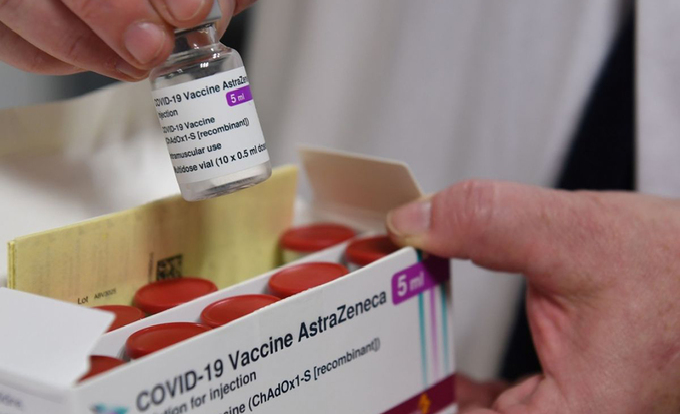 | Vietnamese Government issues resolution on COVID-19 vaccine purchase, use The Government on February 26 issued Resolution No 21/NQ-CP regarding the purchase and use of COVID-19 vaccines. |
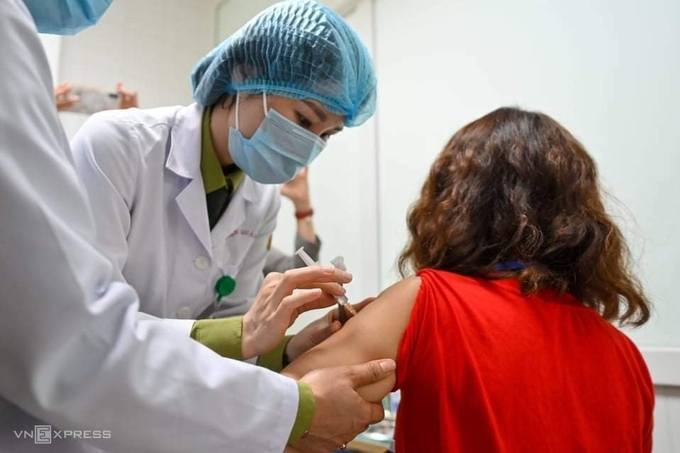 | People involved in anti-pandemic mission are a priority for Covid-19 vaccination The forefront lines including staff working in medical facilities, participators in anti-pandemic missions, soldiers, and public security forces are prioritized groups to receive free Covid-19 ... |
Recommended
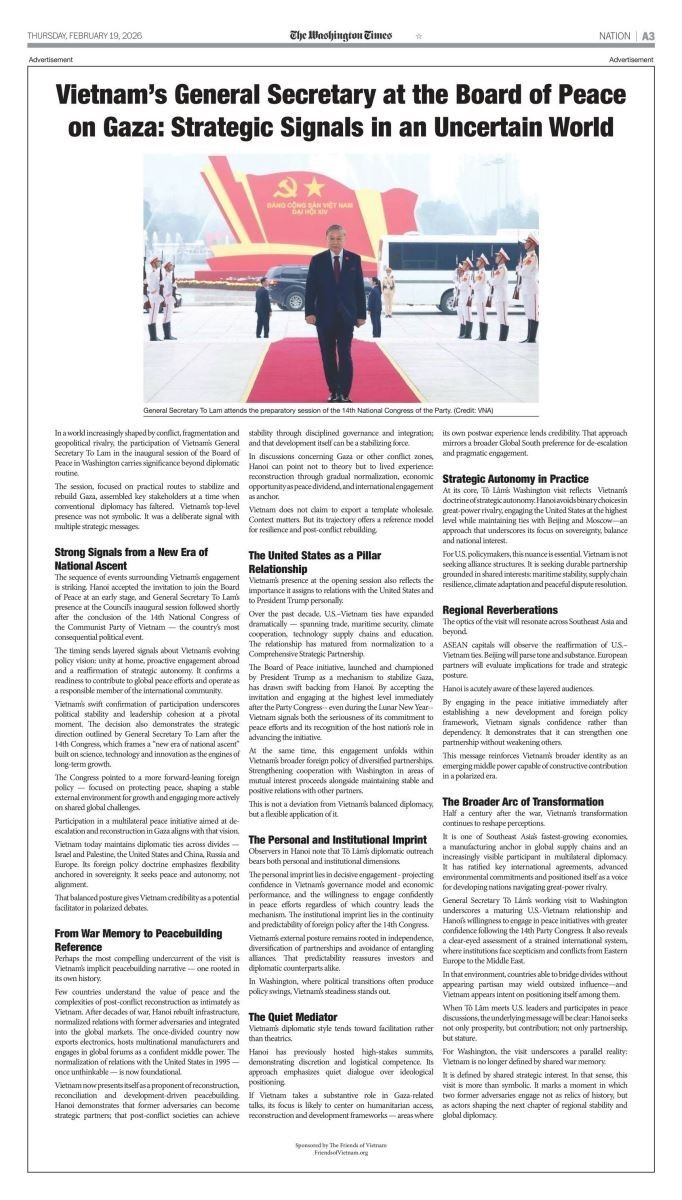 World
World
US Media Commend Vietnam’s Role in Global Peace Efforts
 World
World
Vietnam Officially Becomes Association Country of International Energy Agency (IEA)
 World
World
Key pacts signed as PM Modi hosts France's Macron for plane cooperation
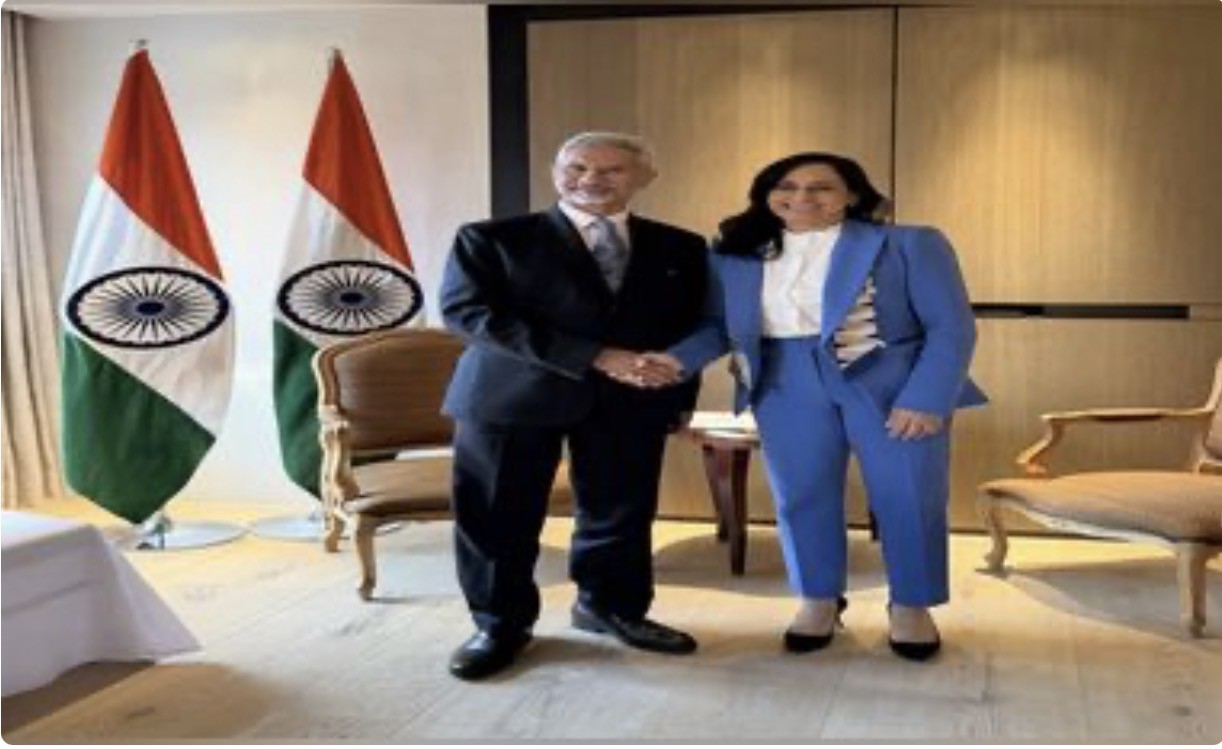 World
World
India, Canada commit to strengthening bilateral ties, discuss trade
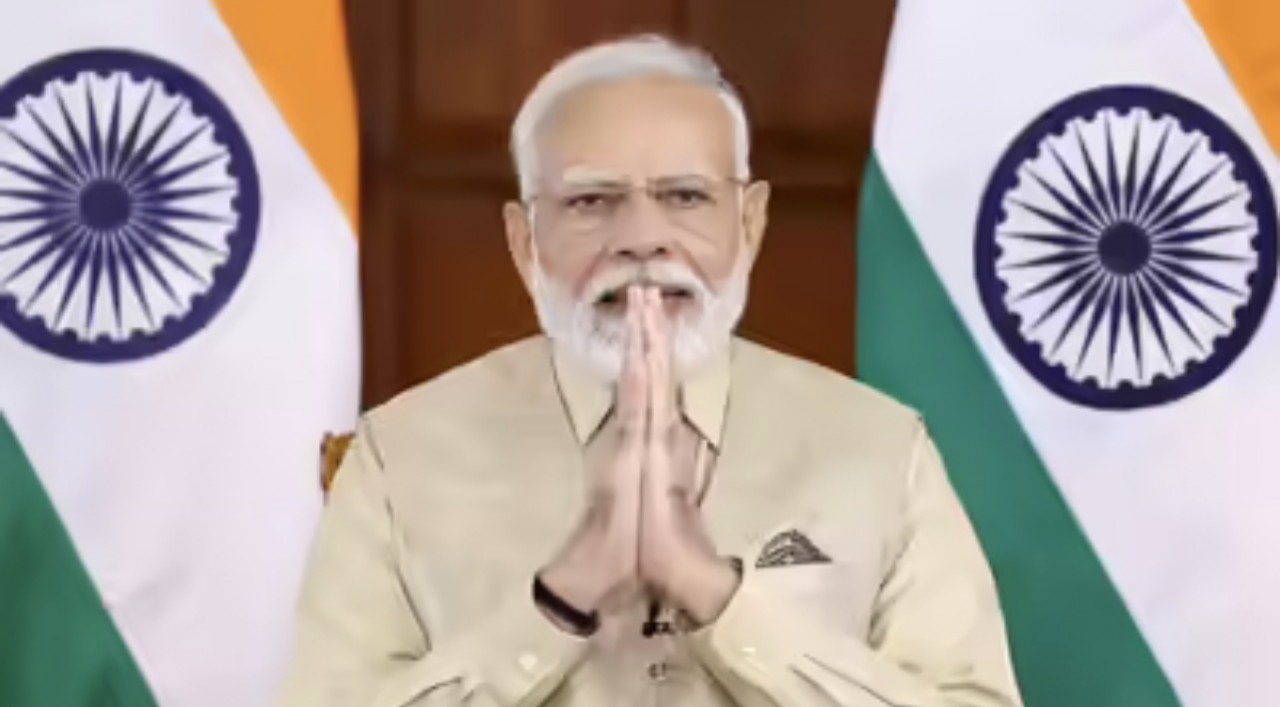 World
World
AI Summit India 2026 Live Updates: ‘Bringing the world together,’ PM Modi welcomes leaders as India hosts AI summit
 World
World
Safran ready to open India engine production in Rafale deal
 World
World
Nepal interim PM Sushila Karki thanks India for March support
 World
World


